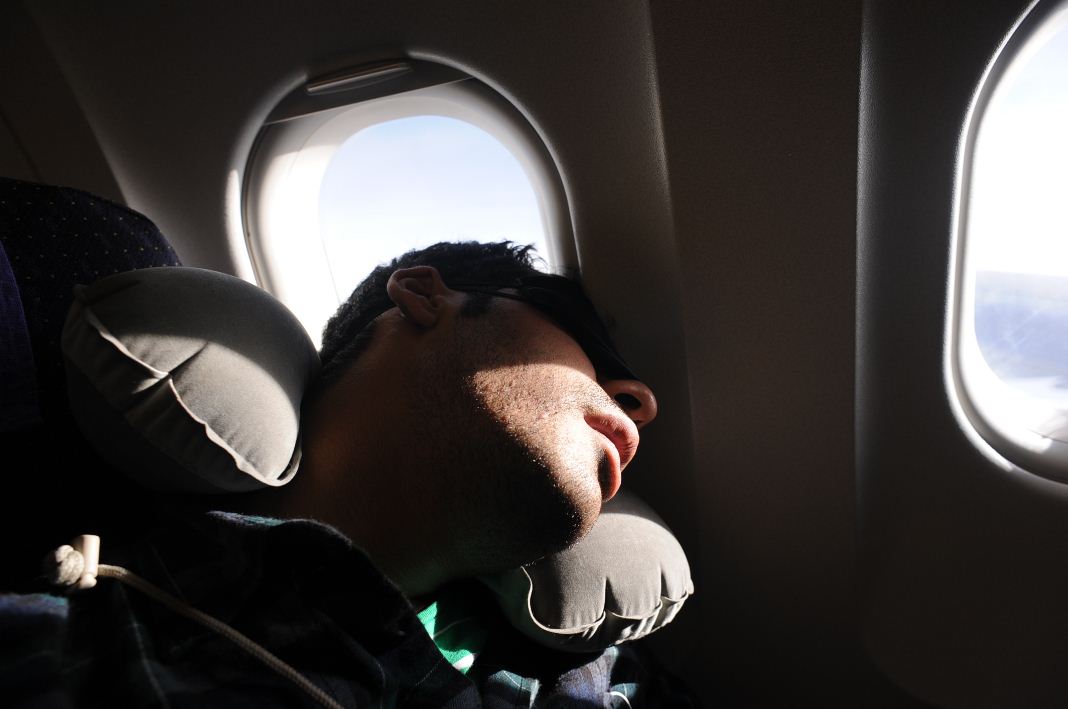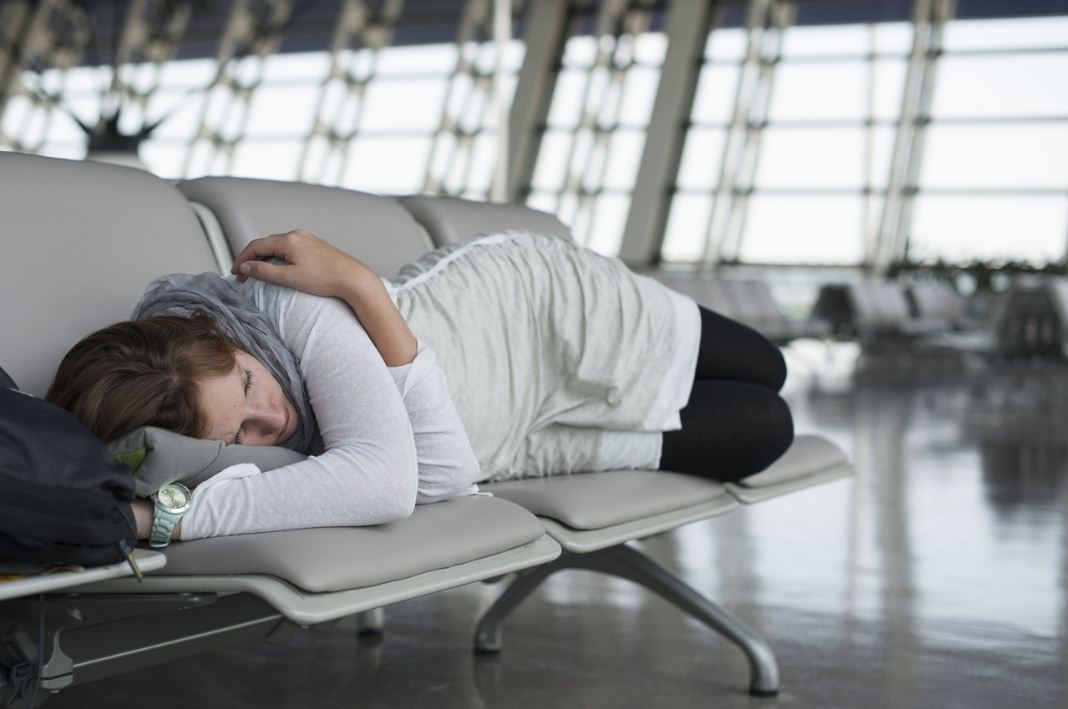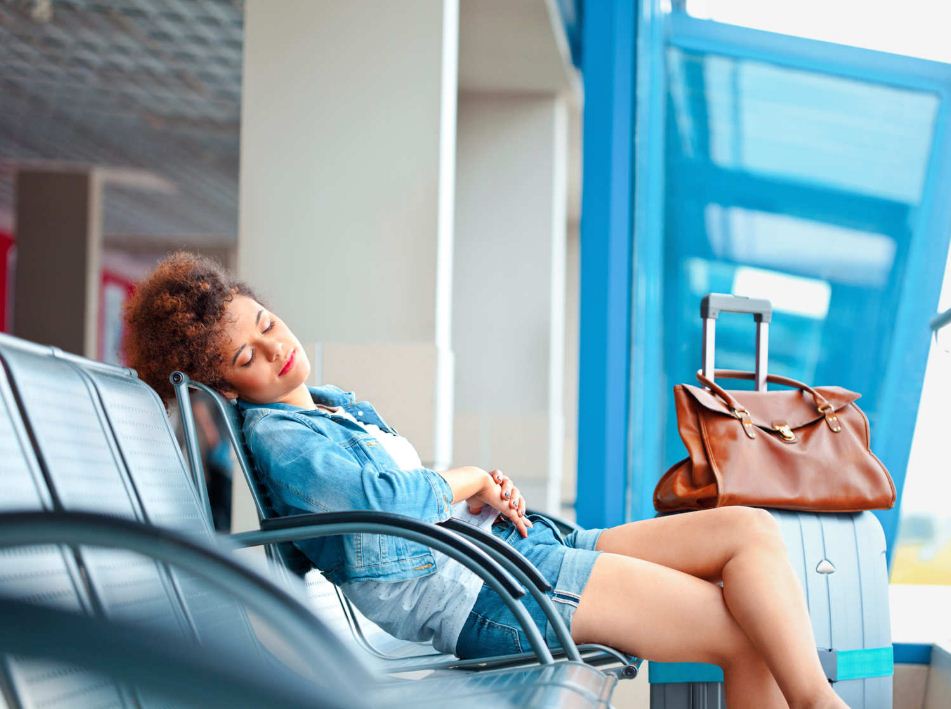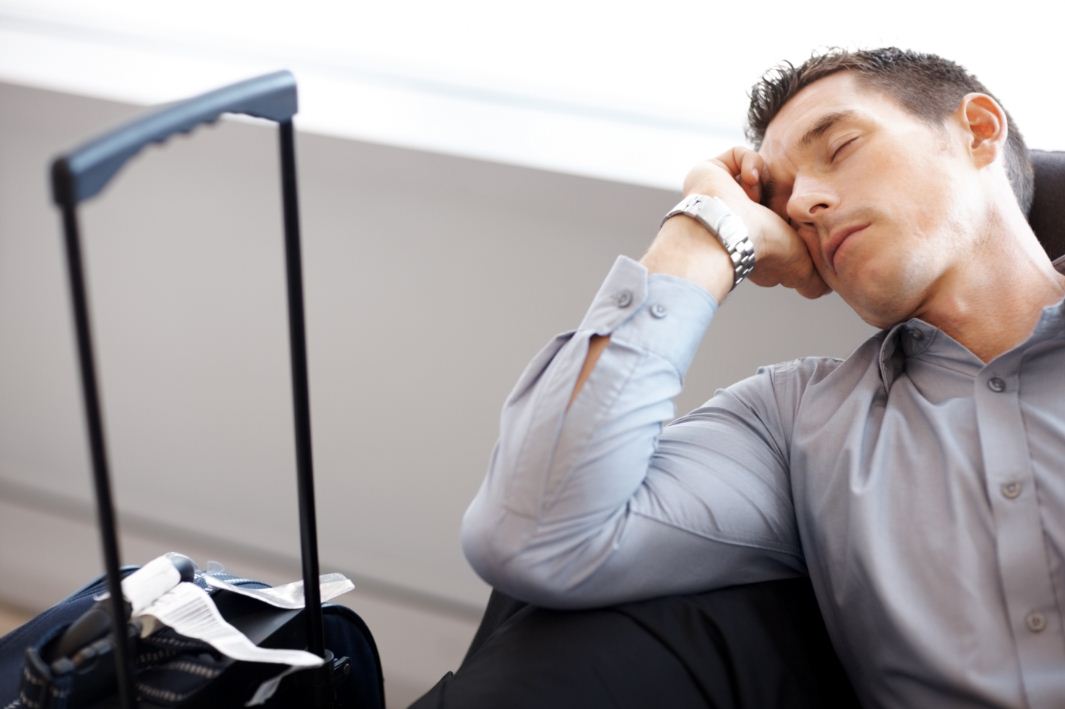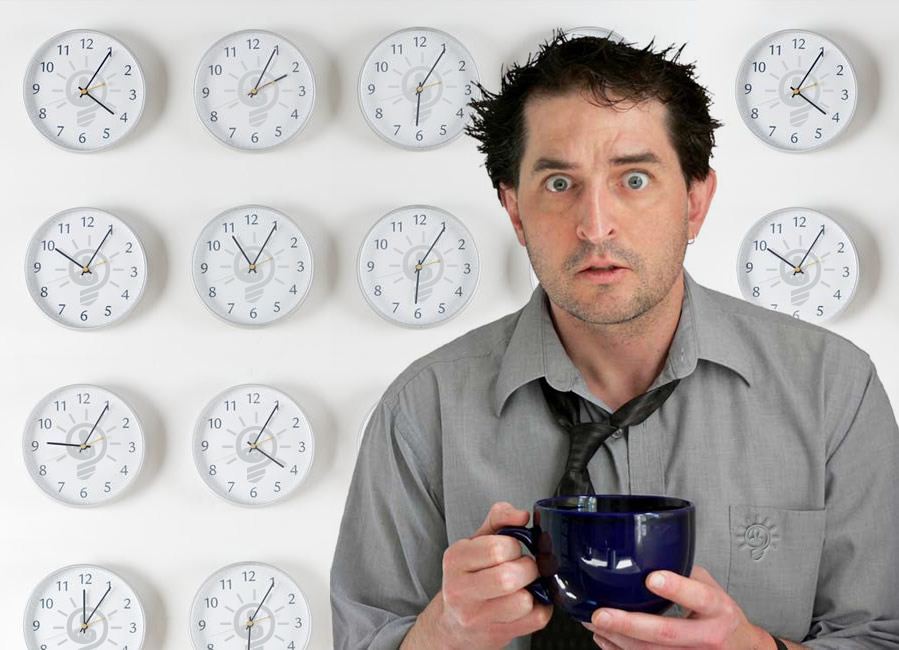5 key jet lag facts you should know
It would be great if there was some catch-all, but perhaps the best way to beat jet lag is to know all the different elements that affect it.
If you genuinely wanted to be the master of jet lag, you’d have to be the master of light—but since no one is going to be able to regulate the Sun’s cycle anytime soon, you do your best.

What makes matters worse is that the human body is a complicated beast. Even if you can pinpoint the elements that influence jet lag—diet, quantity of light, activity levels—the body’s chemistry is so complicated that Charles Ehret, one of the first chronobiologists to investigate the effects of jet lag in the 1970s, stated in Overcoming Jet Lag:
“[Chronobiologists] discovered two facts: one, that your entire body chemistry changes over the course of a day, and that you are quite literally a different person biochemically at six in the morning than you are at midnight, so much so that it is the equivalent of being a redhead at dawn and a blond at midnight; and, two, because of this constant inconstancy within you, your body chemistry reacts quite differently at different times of the day to the same stimulus…”
Great news. But it also explains why all the former presidents have approached jet lag differently over the years.
Light
Anyone who believes that light has no effect on your body’s clock is delusory. The cabin lights are typically lowered during a plane journey for a reason: they are social cues from the cabin crew about when it’s a good time to relax. According to NASA scientists, “light is the key environmental cue informing your body’s clock when to sleep and when to wake,” according to the New York Times. It goes on to suggest that managing jet lag boils down to limiting your body’s exposure to light and darkness. Though I think there are more factors to that—having been subjected to more jet lag than a normal being should have—it does hit on one of the most important facets of beating it. It’s also one more reason for always having a sleeping mask on hand.
Indeed, one of my favorite insights on how important light is comes from my experience in rural Vietnam and Colombia. Even in this day and age, I’ve discovered that communities with limited access to electricity still wake up at the crack of dawn and start hitting the hay as the sun begins to set, regardless of what the clock (or my iPhone) says. It simply goes to show how dependent the human body is on this environmental cue.
Diet
There are a lot of wacky theories about how food may help with jet lag, which gives me even more reason to believe there is some reality behind the supposition. I’ve heard some bizarre stories, such as business travelers who only eat meals at their destination time (dinner meals at dinner in Frankfurt, though he was actually doing breakfast in Hawaii), and the theories outlined in the Argonne Anti-Jet-Lag diet, which requires a full four-day calculated eating schedule before you even get on the plane. Personally, I prefer to eat light and nutritious on flights.
But maybe I’m doing it all wrong. A few years ago, researchers from Harvard and Beth Israel Deaconess Medical Center in Boston also found some evidence that backed up this claim.
Direction
I don’t like to believe direction affects my recovery because I like to think I’m better than that. (I may like to think I’m entering my own version of Fight Club whenever I hop on a transcontinental flight.) However, that said, there does seem to be some evidence that flying east is significantly harder on your body than flying west, as evidenced by the one time I roamed the halls like Casper the ghost after returning from Beijing on one trip.
There is a plethora of scientific data to support this claim. Ehret thought that recovering from a westbound flight was 30 to 50% faster than recovering from an eastern one. According to The Washington Post and Vivek Jain, medical director of the George Washington University Hospital Center for Sleep Disorders, the answer is simple:
“When you travel west, you gain several hours, so your day is extended and your body gets the extra time it naturally wants. But when you travel east, your day is shortened; that makes it harder to adjust…because your body has to cut its natural cycle even further.”
Makes sense. The article goes on to glean that if you’re traveling east, you should aim for an evening arrival. Sure.
Activity
Though it appears that this aspect receives less attention than others, your mental and physical activity also plays a role. It’s for this reason that I try to keep myself active from the moment I get up until it’s time to go to bed. It becomes simply too difficult not to rest once you begin to relax. As a result, I try to keep myself active and physically engaged till sleep.
Ehret suggests that this cue goes beyond physical activity and affects your mental state of being as well:
“However, there was a third, previously unknown signal that impacted alertness and wakefulness. This “social” signal included a timetable of when the man or animal was used to getting up…when it would generally be completing its everyday tasks…and when it would ordinarily interact with others. Social cues are defined as “anything that involves mental stimulation.”
He also, however, argues that mental quiet is just as effective as physical rest. I’m inclined to agree but I’ve never done any scientific studies on myself to back this up.
Caffeine
Then there’s coffee, the simplest of all tools. I’m sure I don’t need to extol the virtues of a good cup of coffee in the morning (as I can personally attest to) or a fast cup of tea. Though there appears to be some inconclusive data about the effect of alcohol on jet lag (most people simply advocate avoiding it altogether), caffeine consumption should be something to consider. If I’m arriving in the early or late afternoon, I’ll usually get a quick cup of coffee before landing to help me get through the remainder of the day.
Interestingly, caffeine apparently affects you differently depending on the time of day you decide to take it. For an interesting little scientific segue from the Ehret book:
“Another extremely dramatic one is to employ the chemical tyephylline, which is naturally found in tea, as well as caffeine and theobromine, which are usually found in coffee… As incredible as it may sound, these three compounds (which come into the primary group of “methylated xanthines”) have the power to reset body clock timers — to, in a way, stop them ahead or backward…. When methylated xanthines were given to experimental animals inactive phase (human “morning”), as if they had a cup of black coffee, their body clocks reverted to a previous time of day…..when [they] were given toward the evening hours, once again there was a dramatic reaction, only this time the body clocks’ timing altered to that of a much later hour.”
It is noted that caffeine is usually the most effective when you give them up for a short time prior to taking them again. Too bad jet lag is such a different beast from just trying to wake up altogether, though.











